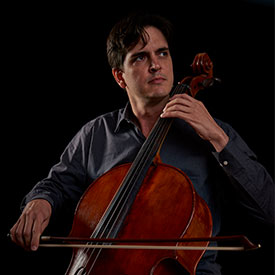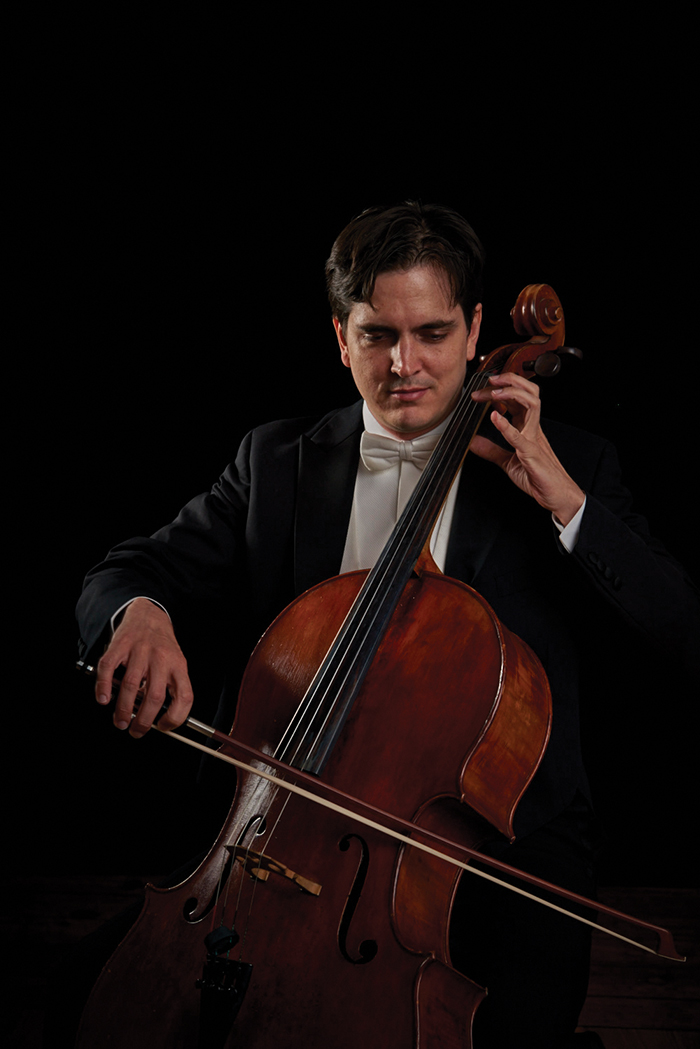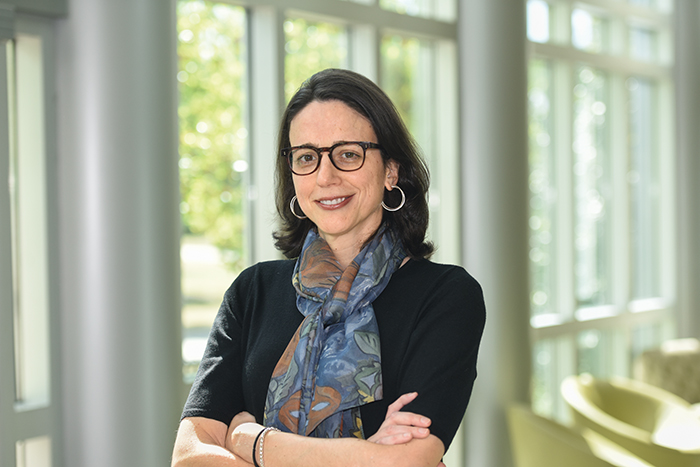 In his second season as the Alabama Symphony Orchestra’s (ASO) music director, Carlos Izcaray was at the top of his game—bringing boundless enthusiasm, ambitious new works, and critical acclaim to the ASO. Then in 2016, he found a suspicious lump in his neck and came to UAB to have it checked. Izcaray was diagnosed with Hodgkin’s lymphoma. “It was very scary from day one,” he says.
In his second season as the Alabama Symphony Orchestra’s (ASO) music director, Carlos Izcaray was at the top of his game—bringing boundless enthusiasm, ambitious new works, and critical acclaim to the ASO. Then in 2016, he found a suspicious lump in his neck and came to UAB to have it checked. Izcaray was diagnosed with Hodgkin’s lymphoma. “It was very scary from day one,” he says.
Lorena de Idiaquez Bakula, M.D., a physician in the Division of Hematology and Oncology, took over his treatment. “He was almost a brand new director and he was facing this disease,” she says. “Chemotherapy is tiring, and it’s hard not knowing what will happen next. Patients often ask themselves, ‘Will this be enough? Will I be cured?’”
In spite of the challenges, Izcaray was determined not to miss a beat. “I wanted to continue making music and share this wonderful art form with the community,” Izcaray says.
De Idiaquez designed Izcaray’s treatment plan, which included six months of chemotherapy delivered through a port in the chest, which was placed on his left side in order not to impair his ability to direct the orchestra. Izcaray was able to go right back to the work he loves doing.
 Carlos Izcaray became the music director for the Alabama Symphony Orchestra in 2015. In 2016, he was diagnosed with Hodgkin’s lymphoma and was treated by UAB hematologist-oncologist Lorena de Idiaquez Bakula.“It is such a blessing to lead an orchestra and make music. Perhaps the nature of the work that I do helped me get through it,” Izcaray says. “The musicians, the staff, my colleagues and friends, and the whole community was very supportive. I also felt fantastic support from my entire oncology team. Many of them went to the concerts, so they knew about the orchestra. Even within this unlucky scenario, I felt lucky to have such good care.”
Carlos Izcaray became the music director for the Alabama Symphony Orchestra in 2015. In 2016, he was diagnosed with Hodgkin’s lymphoma and was treated by UAB hematologist-oncologist Lorena de Idiaquez Bakula.“It is such a blessing to lead an orchestra and make music. Perhaps the nature of the work that I do helped me get through it,” Izcaray says. “The musicians, the staff, my colleagues and friends, and the whole community was very supportive. I also felt fantastic support from my entire oncology team. Many of them went to the concerts, so they knew about the orchestra. Even within this unlucky scenario, I felt lucky to have such good care.”
Then, an even better day came. “After two months of treatment, Carlos had a great PET scan,” de Idiaquez says. “I decided to shorten his treatment to four months.” At four months, Izcaray’s scans came back clean, and he finished undergoing treatment in May 2017. More than two years later, he remains cancer-free.
Izcaray’s experience at UAB is emblematic of the longstanding relationship between UAB and the ASO. Since 2008, they have collaborated on Physicians and Faculty for the ASO (originally Doctors for the ASO), a fundraising and support organization for the ASO as well as a celebration of the commonalities between music and medicine.
“There is a lot of connection,” says Ansley Frachiseur, individual giving manager for the ASO. “We use all our senses when we’re playing music to communicate, as in medicine.”
When people become Physicians and Faculty for the ASO members—which includes tickets to a special, side-by-side concert by the Alabama Symphony and the Alabama Symphony Youth Orchestra featuring a reception with Izcaray, part of their membership helps bring live performances into hospitals. It also supports music education in the community. Last year, 57 individuals contributed to the program, which raises about $100,000 each season.
Anupam Agarwal, M.D., executive vice dean of the School of Medicine and Division of Nephrology director, is the program co-chair and says there is a strong push to recruit health care professionals from outside UAB to become members. He thinks it should be an easy sell. “I’ve been to symphonies all over the country, and ours is second to none,” Agarwal says. “It’s a crown jewel for our city.”
 Lorena de Idiaquez Bakula Izcaray’s treatment journey made the connection personal, but he also appreciates the less tangible bonds. “We are all in a way in the same business: to improve lives in our community and to make people feel better,” he says. “Going back even to the birth of medicine and the Hippocratic oath, Hippocrates was a huge believer in the power of music and how it’s good for the soul.”
Lorena de Idiaquez Bakula Izcaray’s treatment journey made the connection personal, but he also appreciates the less tangible bonds. “We are all in a way in the same business: to improve lives in our community and to make people feel better,” he says. “Going back even to the birth of medicine and the Hippocratic oath, Hippocrates was a huge believer in the power of music and how it’s good for the soul.”
By Rosalind Fournier